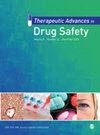Ten-year trends in adverse drug reaction–related hospitalizations among people with dementia
IF 3.4
3区 医学
Q2 PHARMACOLOGY & PHARMACY
引用次数: 4
Abstract
Aim: Trends in the incidence of adverse drug reaction (ADR)–related hospitalizations have been studied in the general population, but not specifically in people with dementia. This study aimed to investigate trends in the incidence of ADR-related hospitalizations among people with dementia, and identify the most commonly implicated drugs and diagnoses in these admissions. Methods: This study utilized the administrative data of all adults admitted to the four major public hospitals of Tasmania, Australia, with a primary or secondary diagnosis of dementia from July 2010 to December 2019. ADR-related hospitalizations were identified by using diagnosis-based and external cause codes. The Cochran–Armitage test was used to examine trends in the incidence of ADR-related hospitalizations. Results: Of the 7552 people with dementia admitted to the hospital at least once within the study period, 1775 (23.5%) experienced at least one ADR-related hospitalization. The estimated annual incidence of ADR-related hospitalizations increased 18% (1484–1760 per 100,000 population with dementia, p for trend <0.05) from 2010 to 2019. For those ADR-related admissions with a drug code recorded, 19.3% were due to antithrombotics and 11.5% to antihypertensives. The most frequent ADR-related admission diagnoses were renal diseases (72.9%). Length of hospital stay and in-hospital mortality were both significantly greater for ADR-related, relative to non-ADR-related, admissions (median 7 versus 5 days and 11% versus 6.7%, respectively; p < 0.001). Conclusion: The annual incidence of ADR-related hospitalizations in people with dementia increased between 2010 and 2019. Antithrombotics were the most commonly implicated drug class. The ADR-related hospitalizations were associated with increased length of stay and greater mortality. Plain Language Summary Adverse drug reaction–related hospitalizations among people with dementia Introduction: This study aimed to investigate trends in hospitalizations associated with medication problems among people with dementia, and identify the most commonly implicated drugs and diagnoses in these admissions. Methods: This study utilized the administrative data of all adults admitted to the four major public hospitals of Tasmania, Australia, with dementia from July 2010 to December 2019. Results: The annual incidence of hospitalizations associated with medication problems among people with dementia increased nearly 20% over 10 years. The length of hospital stay and in-hospital mortality were significantly greater for hospitalizations related to medication problems. Conclusion: The incidence of hospitalizations associated with medication problems in people with dementia increased between 2010 and 2019.痴呆症患者药物不良反应相关住院治疗的十年趋势
目的:研究了一般人群中药物不良反应(ADR)相关住院的发生率趋势,但没有专门研究痴呆患者。本研究旨在调查痴呆症患者中与不良反应相关的住院发生率的趋势,并确定这些入院中最常见的相关药物和诊断。方法:本研究利用了2010年7月至2019年12月期间在澳大利亚塔斯马尼亚州四家主要公立医院就诊的所有原发性或继发性痴呆患者的行政数据。通过使用基于诊断和外因代码确定与不良反应相关的住院情况。Cochran-Armitage检验用于检查与不良反应相关的住院发生率的趋势。结果:在研究期间至少住院一次的7552名痴呆患者中,1775名(23.5%)经历了至少一次与不良反应相关的住院治疗。从2010年到2019年,与不良反应相关的住院率估计增加了18%(每10万痴呆患者中有1484-1760人,p <0.05)。在有药物编码记录的不良反应相关入院患者中,19.3%是抗血栓药物,11.5%是抗高血压药物。最常见的与adr相关的入院诊断是肾脏疾病(72.9%)。与非adr相关的住院相比,与adr相关的住院时间和住院死亡率均显著高于非adr相关的住院时间(中位数分别为7天和5天,11%和6.7%;p < 0.001)。结论:2010年至2019年,痴呆症患者中与不良反应相关的住院率逐年上升。抗血栓药是最常见的药物类别。与不良反应相关的住院治疗与住院时间的延长和更高的死亡率有关。前言:本研究旨在调查痴呆症患者与药物问题相关的住院趋势,并确定这些入院中最常见的相关药物和诊断。方法:本研究利用了2010年7月至2019年12月在澳大利亚塔斯马尼亚州四家主要公立医院住院的所有痴呆成年人的管理数据。结果:10年来,痴呆症患者因药物问题而住院的年发生率增加了近20%。与药物问题相关的住院时间和住院死亡率显著更高。结论:2010年至2019年期间,痴呆症患者与药物问题相关的住院率有所增加。
本文章由计算机程序翻译,如有差异,请以英文原文为准。
求助全文
约1分钟内获得全文
求助全文
来源期刊

Therapeutic Advances in Drug Safety
Medicine-Pharmacology (medical)
CiteScore
6.70
自引率
4.50%
发文量
31
审稿时长
9 weeks
期刊介绍:
Therapeutic Advances in Drug Safety delivers the highest quality peer-reviewed articles, reviews, and scholarly comment on pioneering efforts and innovative studies pertaining to the safe use of drugs in patients.
The journal has a strong clinical and pharmacological focus and is aimed at clinicians and researchers in drug safety, providing a forum in print and online for publishing the highest quality articles in this area. The editors welcome articles of current interest on research across all areas of drug safety, including therapeutic drug monitoring, pharmacoepidemiology, adverse drug reactions, drug interactions, pharmacokinetics, pharmacovigilance, medication/prescribing errors, risk management, ethics and regulation.
 求助内容:
求助内容: 应助结果提醒方式:
应助结果提醒方式:


